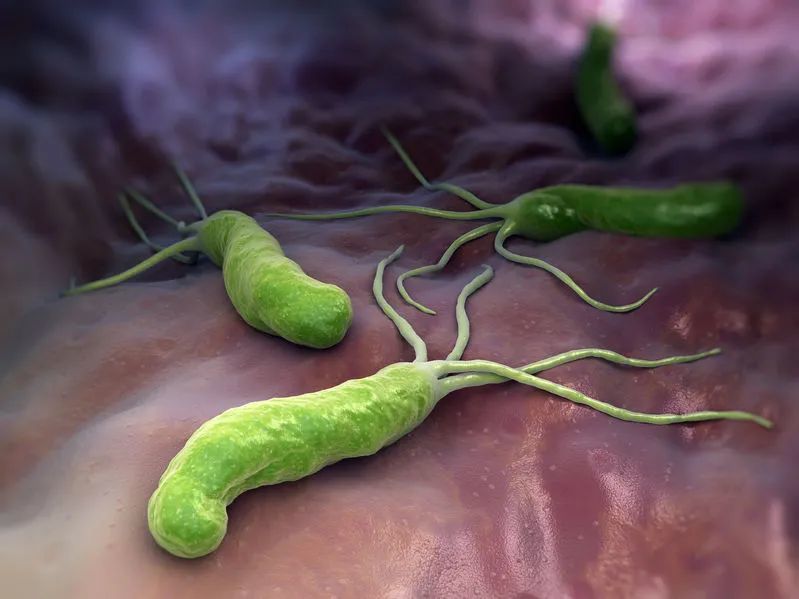▎WuXi AppTec content team editor
When it comes to Helicobacter pylori (Hp for short), many people may have heard of its name. After all, this bacterium is very "intimate" to us, is one of the most common microorganisms that cause chronic infection in humans, the global infection rate is as high as 50%, and the 2022 meta-analysis shows that the infection rate of Helicobacter pylori in the Chinese group is 44.2%, and China is also the country with the largest number of Helicobacter pylori infections.
Childhood is the age group at high risk for Helicobacter pylori infection; The prevalence of Helicobacter pylori infection in 25-year-olds is close to 50%; The infection rate in 35-year-olds exceeds 60%; The infection rate among people over 70 years old is as high as 80%.

Image source: 123RF
Helicobacter pylori usually settles in the gastric mucosa, which is closely related to the occurrence of dyspepsia, chronic gastritis, and peptic ulcer, and is also one of the most risk factors for gastric cancer, and is classified as a class I carcinogen of gastric cancer by the World Health Organization. In 2005, Australian scientists B.J. Marshall and J.R. Warren were awarded the Nobel Prize in Physiology or Medicine for revealing the link between Helicobacter pylori infection and stomach cancer.
However, stomach cancer is not the only important disease associated with Helicobacter pylori and its associated inflammation. Epidemiological data show that people infected with Helicobacter pylori have an almost 2-fold increased risk of colorectal cancer (CRC).
Recently, a research paper published by GUT, a well-known journal in the field of digestion, further proved that Helicobacter pylori infection has a strong causal relationship with the occurrence of colorectal cancer.
The new study was led by Professor Markus Gerhard of the Technical University of Munich in Germany. The research team first verified the possible direct causal relationship between Helicobacter pylori infection and colon cancer through animal experiments, as well as the underlying mechanism behind it.
To do this, they infected experimental mice with Helicobacter pylori. Some of these mice carry the most common driver gene for colorectal cancer, the mutated Apc gene, which is prone to early tumor formation. When these mice were inoculated with Helicobacter pylori, their colon developed faster cancer and formed more tumors than mice that were not infected with Helicobacter pylori.
Why does Helicobacter pylori implanted in the stomach promote the development of intestinal tumors? The researchers used immunohistochemistry, single-cell RNA sequencing and other methods to analyze the changes of intestinal immune response and epithelial characteristics in detail.
It was found that Helicobacter pylori drives a unique immune-altered signature in the gut, including a decrease in regulatory T cells and pro-inflammatory helper T cells. In addition, in intestinal epithelial cells, Helicobacter pylori induces activation of the key cancer-promoting signaling pathway STAT3, which promotes tumor formation. At the same time, a decrease in the number of goblet cells that synthesize and secrete protective mucus means that the protective barrier on the surface of the intestine is broken.
On the other hand, the intestinal flora also changed drastically with the colonization of Helicobacter pylori, including the increase in pro-inflammatory and intestinal bacteria that break down intestinal mucus. The combination of various changes is contributing to the occurrence and development of bowel cancer.
Although these results came from mouse experiments, the researchers then analyzed patients infected with Helicobacter pylori and similarly saw similar immune signatures and intestinal epithelial changes in their colon biopsy results.
Image source: 123RF
It is worth mentioning that in the experiment, when the researchers eradicated Helicobacter pylori in Apc mutant mice with antibiotics, the tumor incidence of these susceptible mice was reduced and returned to a level consistent with that of the uninfected control group. This result suggests that eradication of Helicobacter pylori can also be an important measure to prevent colorectal cancer.
Many times, many people with Helicobacter pylori infection may not notice the discomfort caused by this pathogenic bacteria in the body, and the new study reminds us that Helicobacter pylori screening and radical treatment will help eliminate the potential hidden dangers of gastric cancer, colorectal cancer and other diseases.
Resources:
[1] Ralser A, Dietl A, Jarosch S, et al., (2023) Helicobacter pylori promotes colorectal carcinogenesis by deregulating intestinal immunity and inducing a mucus-degrading microbiota signature. GUT Doi: 10.1136/gutjnl-2022-328075